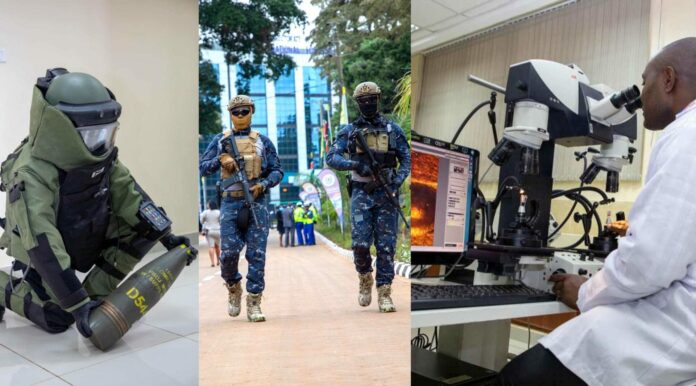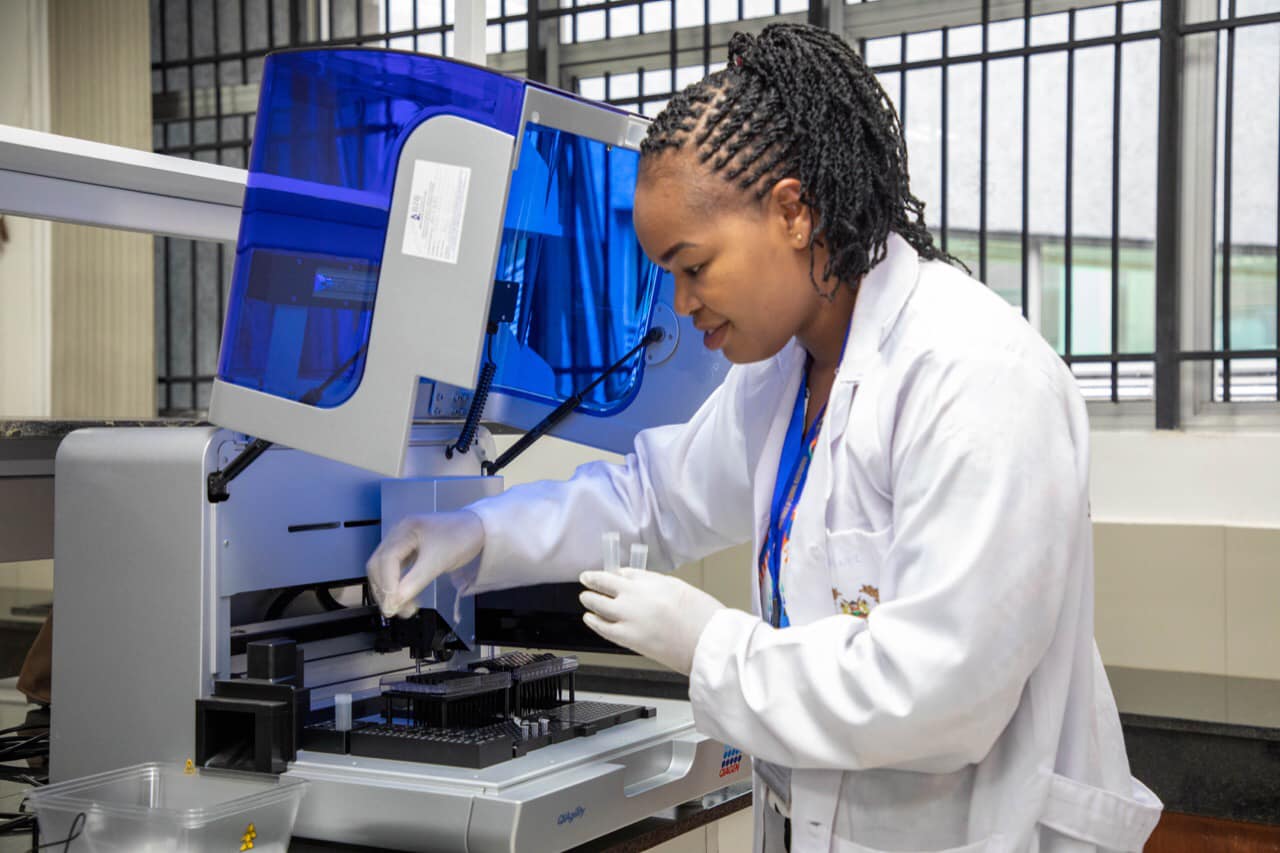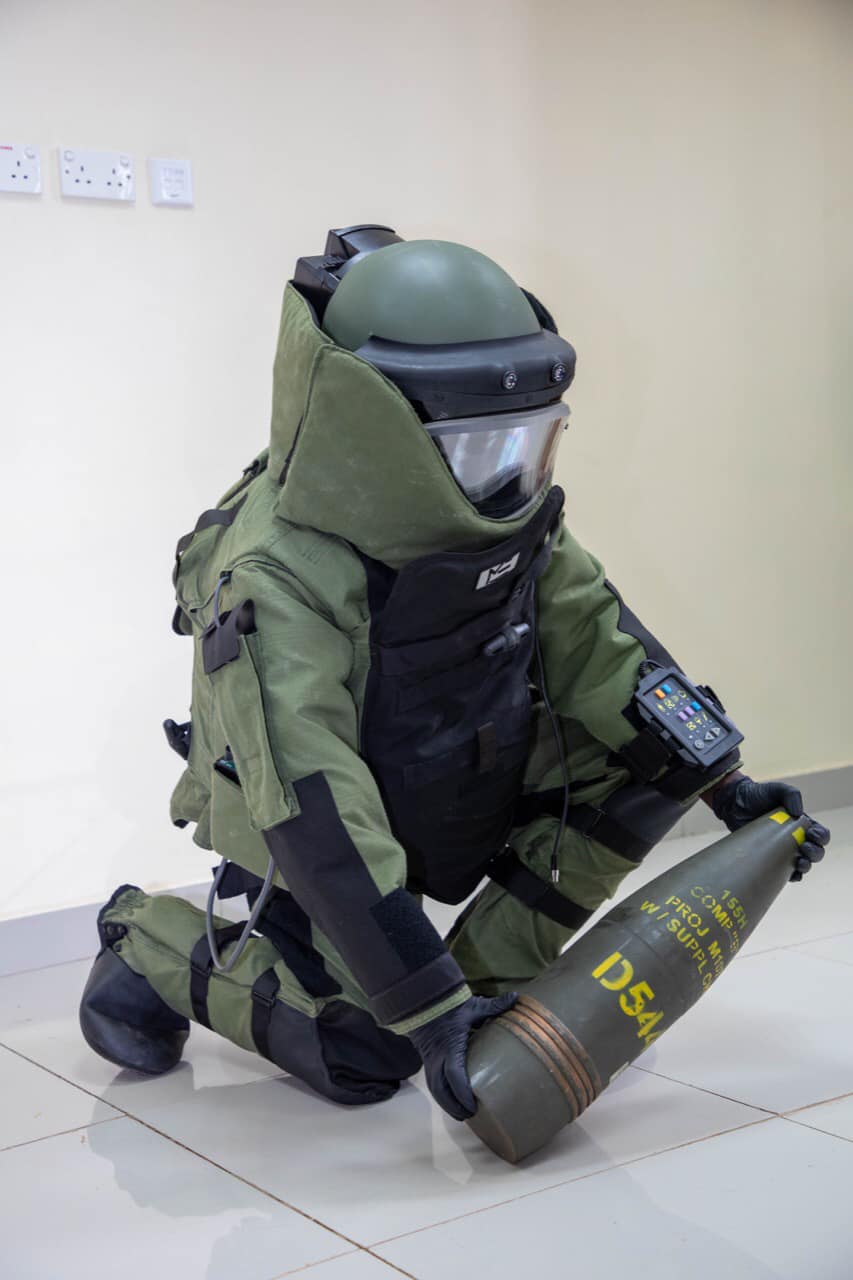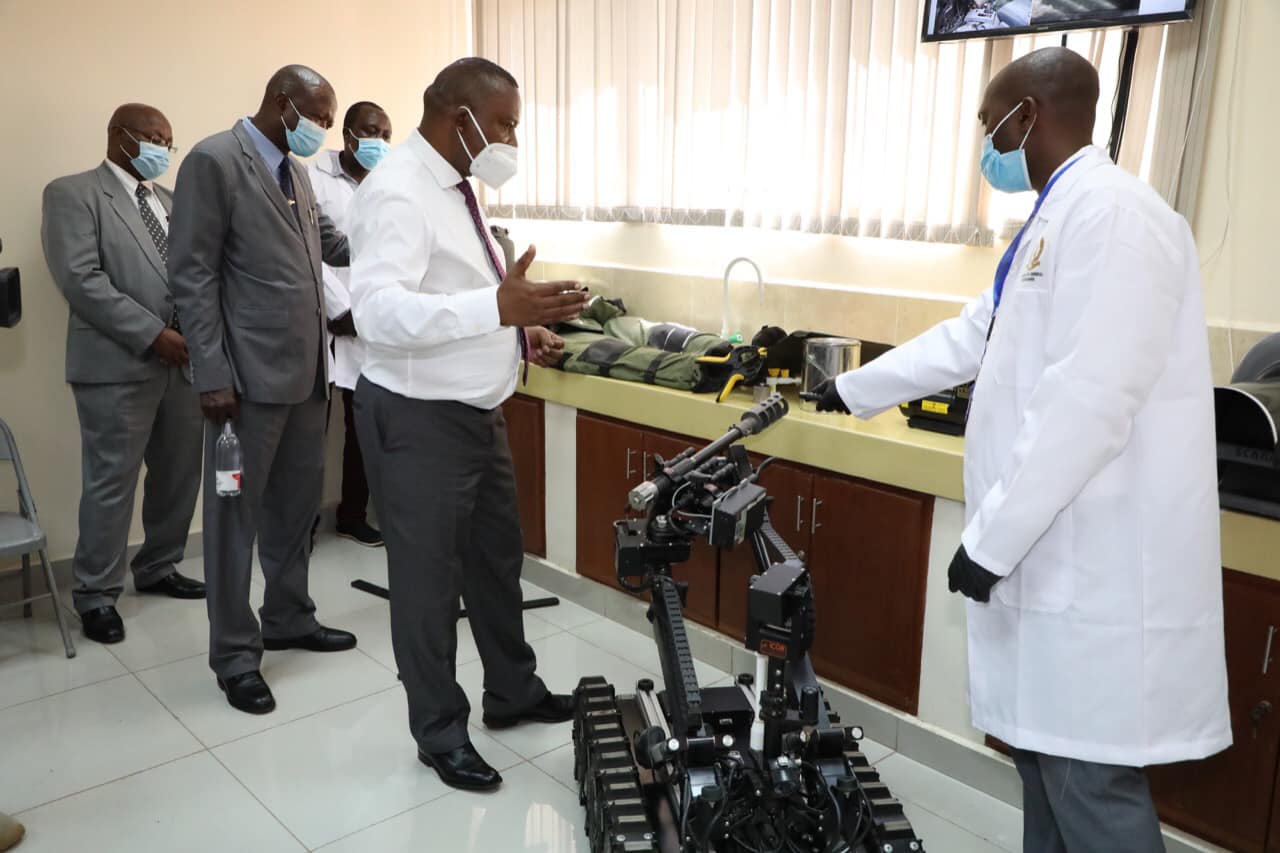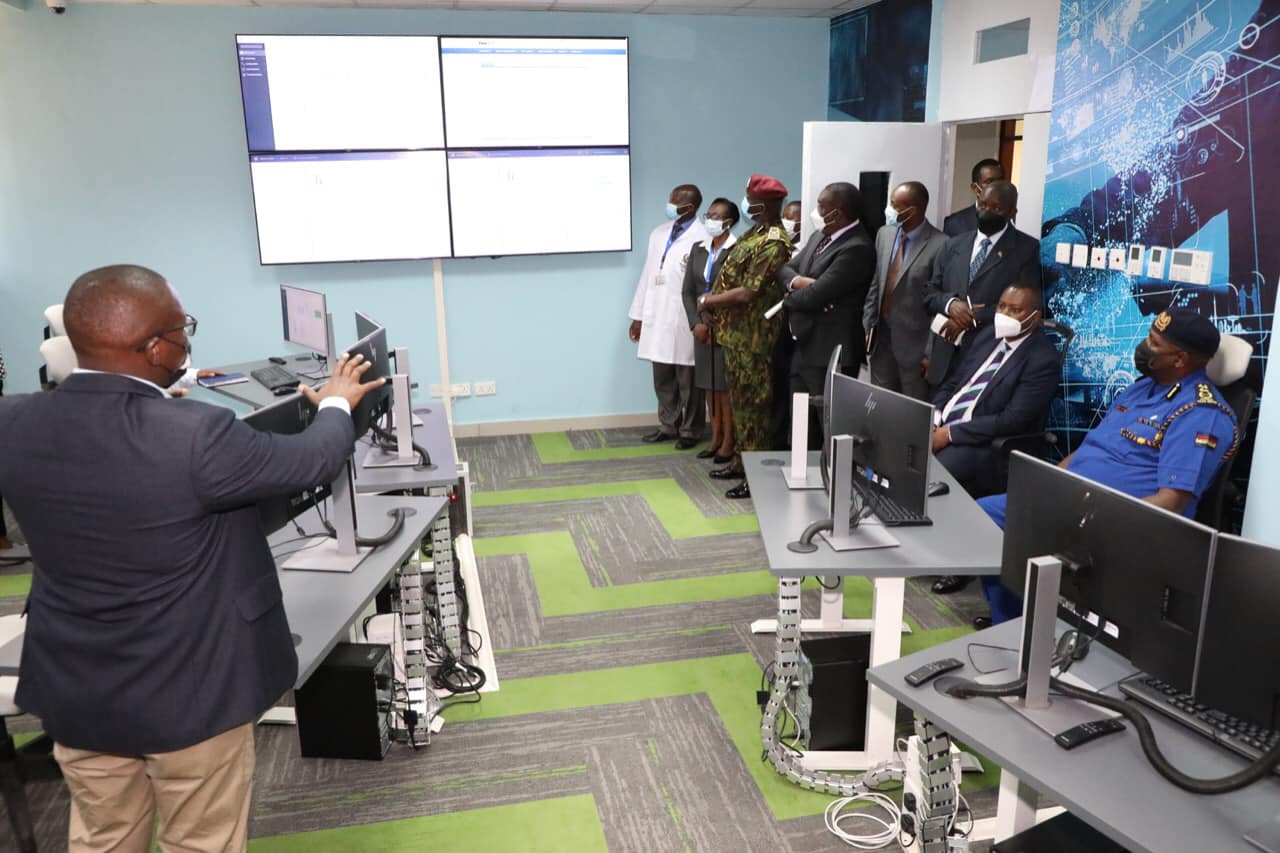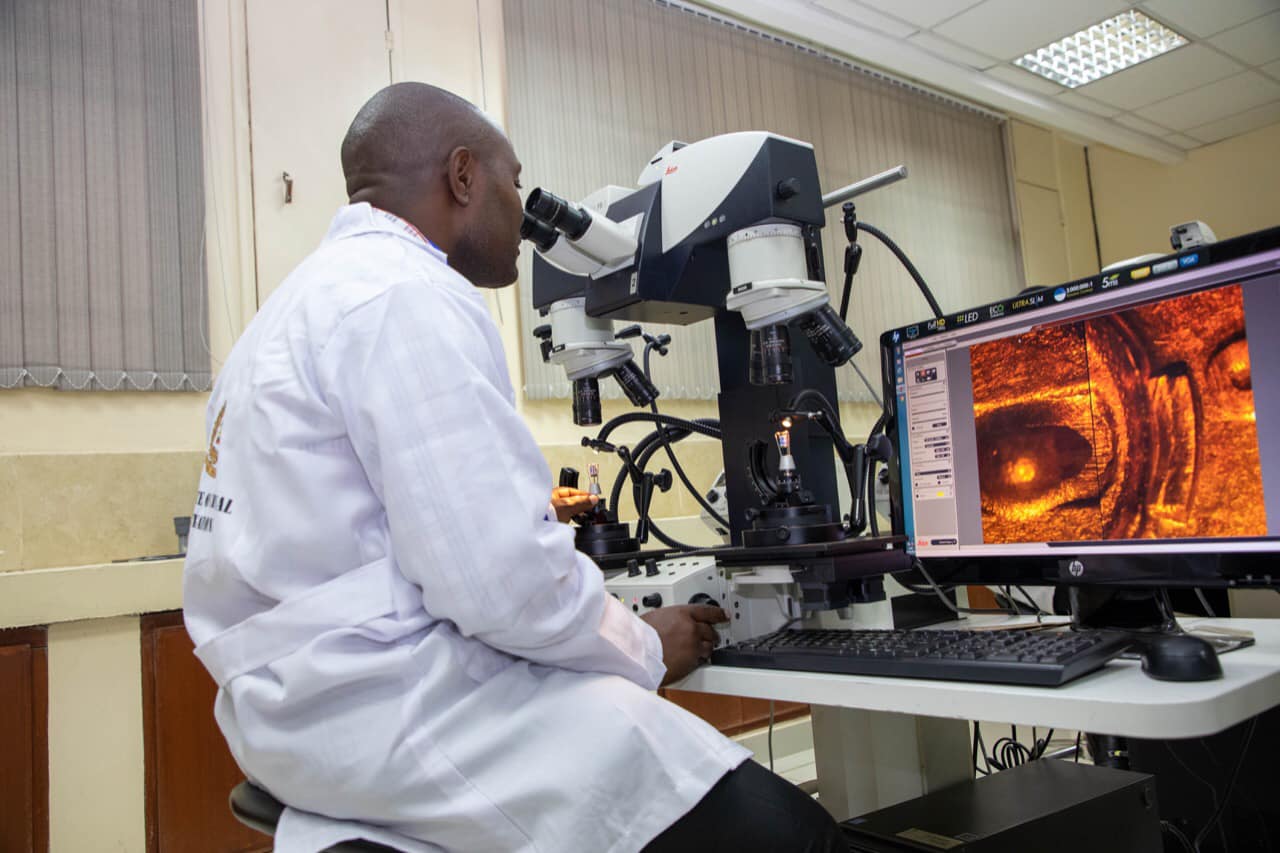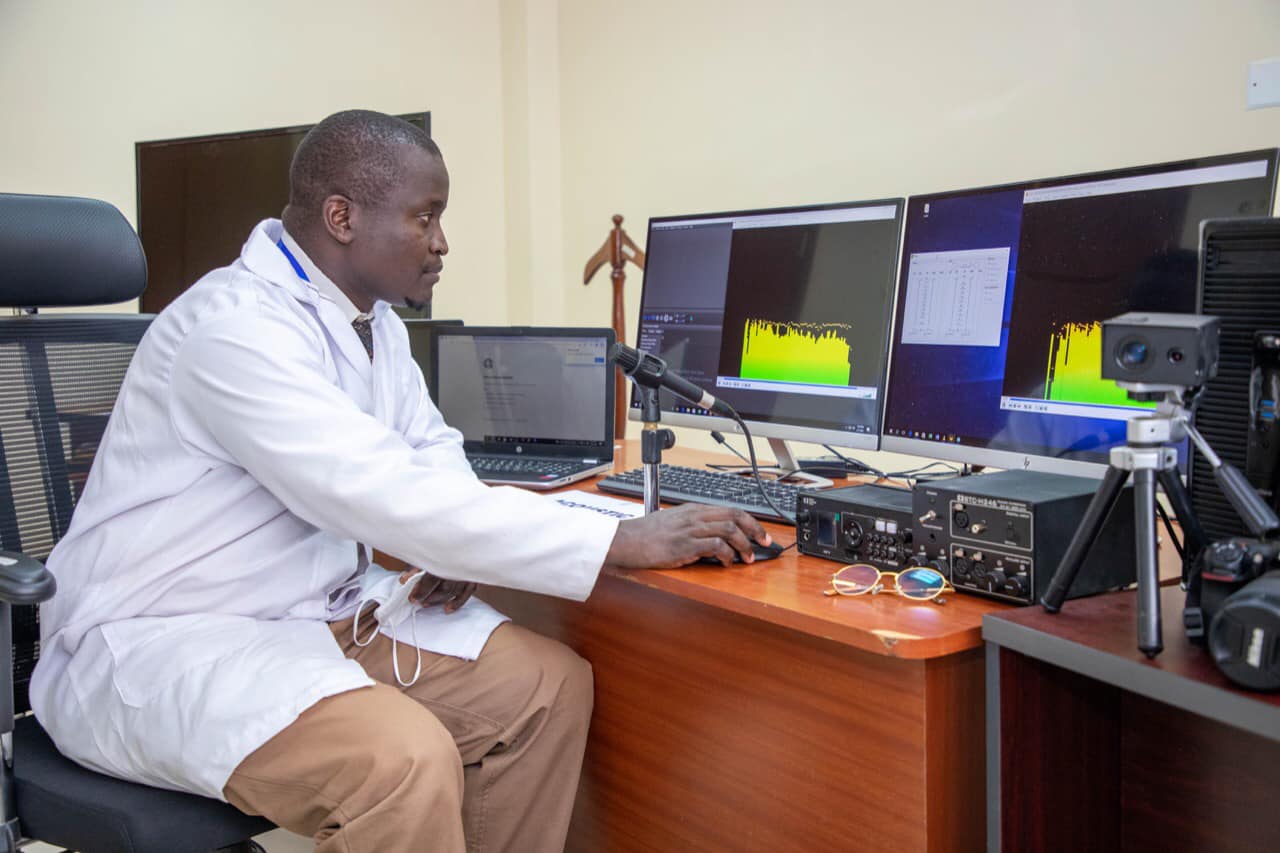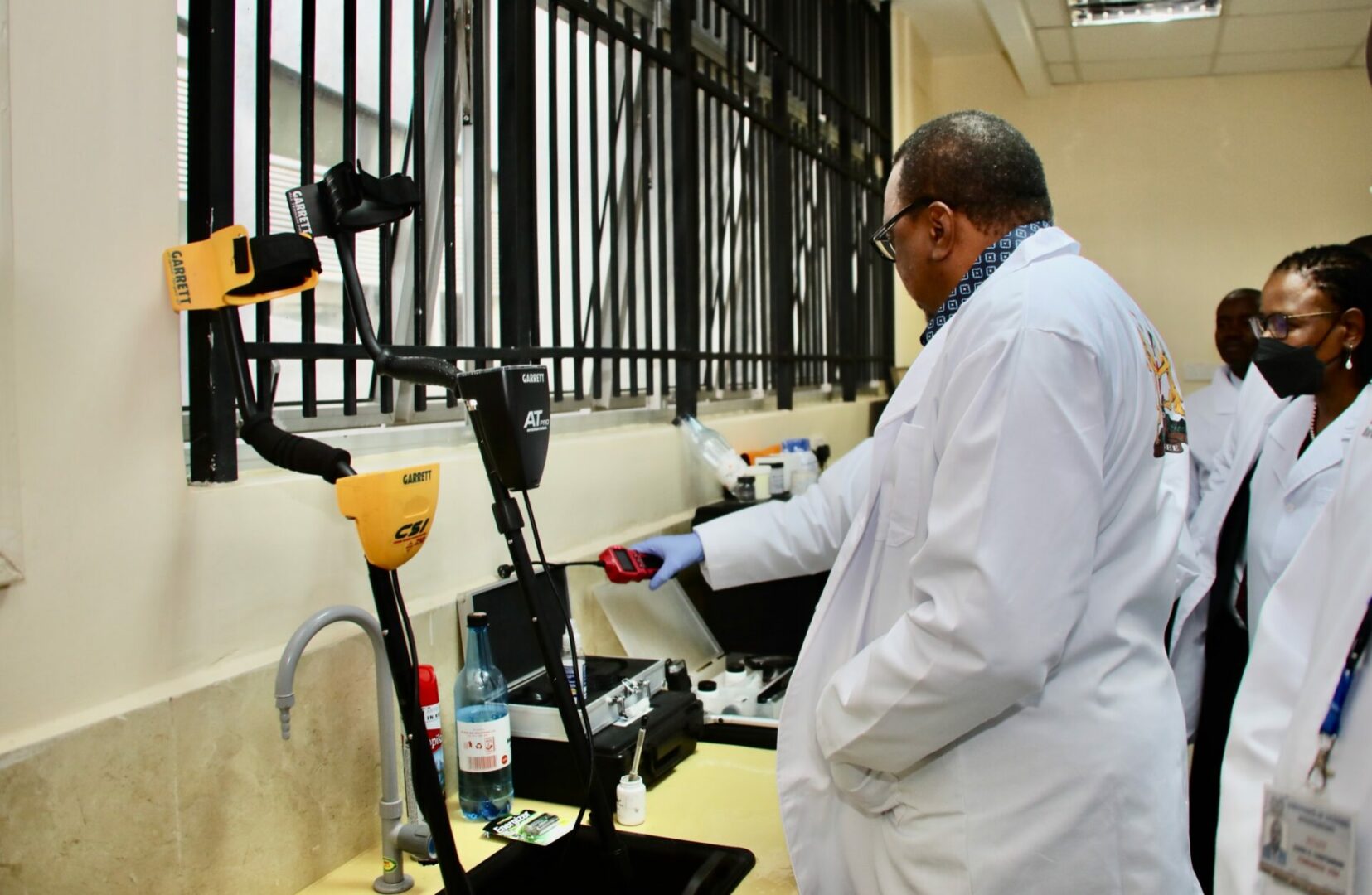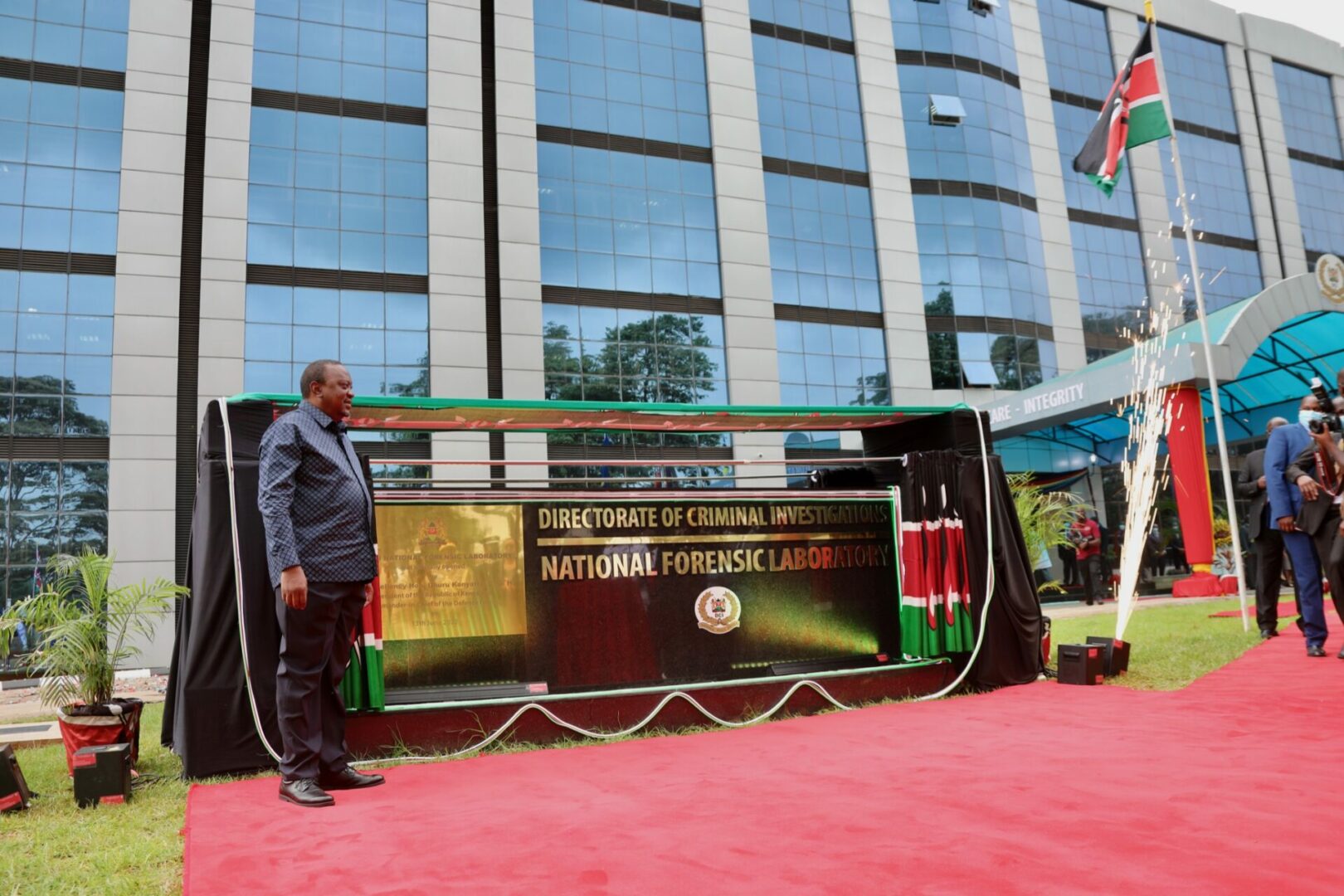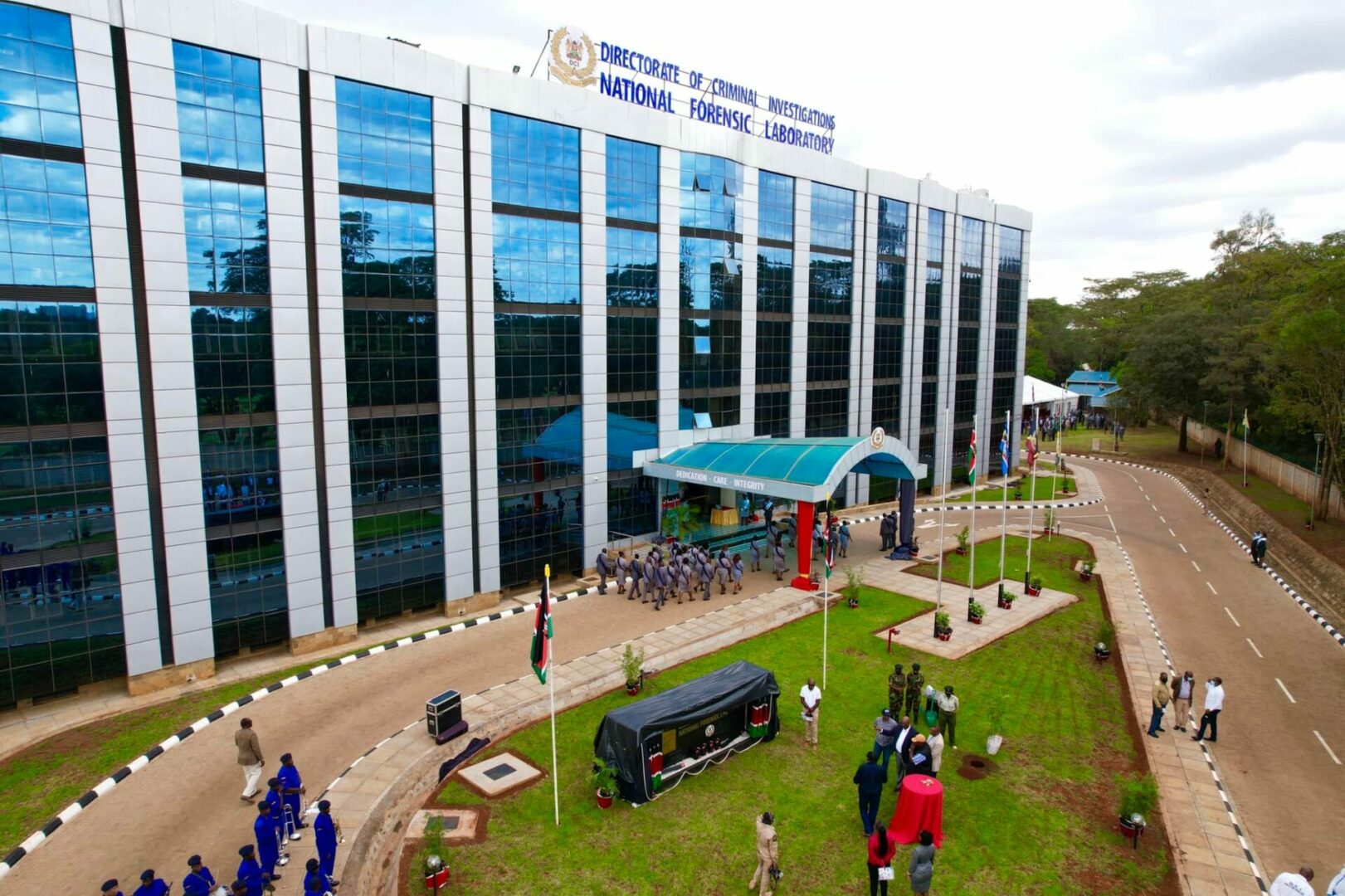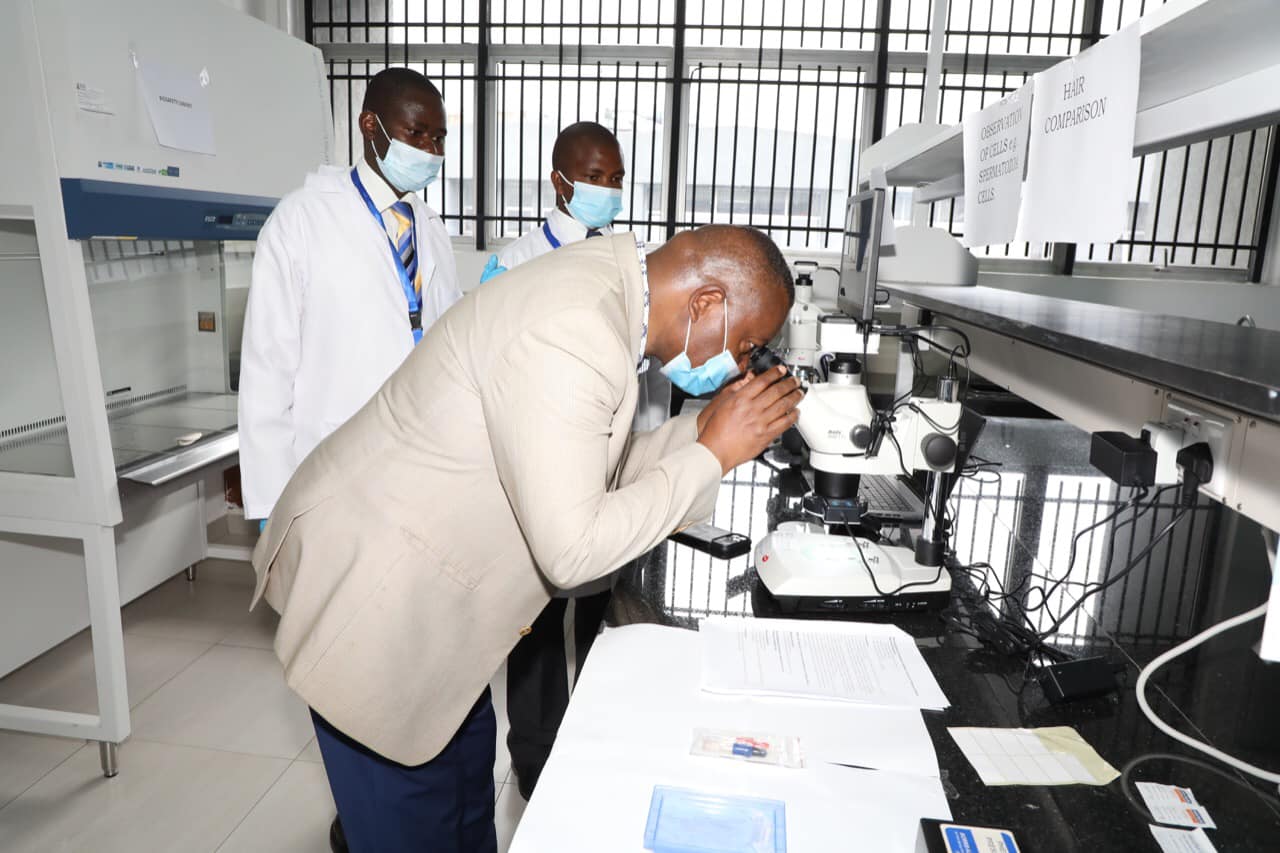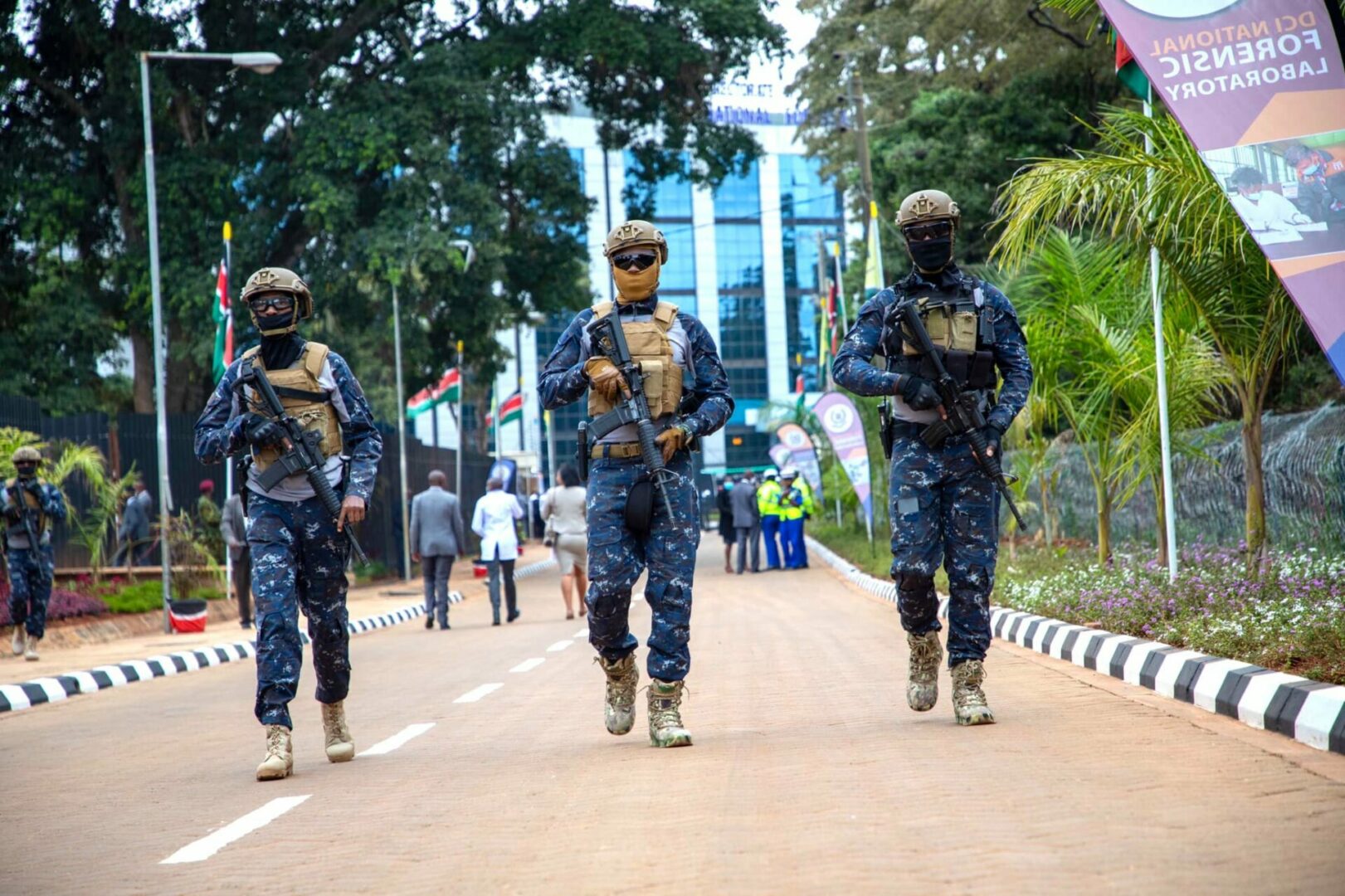President Uhuru Kenyatta on June 13 opened the new ultra-modern DCI Forensic Lab in Nairobi. The new DCI Forensic Lab is a Sh. 4 billion complex that is located at the Directorate of Criminal Investigations Headquarters in Nairobi.
The Lab contains multiple units which will be dedicated towards fighting crime and averting potential acts of terrorism. The DCI cites as follows on the newly launched complex:
CRIME SCENE INVESTIGATIONS UNIT
This is a core forensic unit entrusted with carrying out Forensic Crime Scene Investigations to interrogate a scene of crime scientifically. It is done to discover evidential ingredients and any other investigative information that may be realized from the analytical processes at a scene of crime.
While attending to crime scenes, experts process and examine the scenes scientifically, to trace, package and label recovered evidence, in order to prove culpability of a suspect or exonerate those not involved in a specific crime.
The unit is also instrumental in crime scene reconstruction, a forensic discipline that involves the experts in unravelling the series of events that surround the commission of a crime using deductive and inductive reasoning, scientific methods, events analysis and physical evidence examination and their interrelationships.
The experts under this unit are capable of placing criminals to scenes of crime scientifically, through hidden fingerprint search development and recovery. They analyze the mode of operation of criminals through crime scene pattern analysis, which is essential in identifying similar crimes committed by a specific suspect and linking them to those crimes.
Among other vital investigative roles, the unit also conducts vehicle identification and serial numbers verification and restoration in vehicles and firearms.
Besides giving their expert opinion in court, the investigators also offer guidance and assist investigators in matters relating to crime scene preservation and exhibit handling.
FORENSIC CHEMISTRY UNIT
This unit plays a critical role in carrying out analytical procedures and processes pertaining to interrogation of samples extracted at a scene of crime, by exploiting their chemical properties.
Experts in Chemical analysis and laboratory technicians have been deployed in this unit and their professional opinion that is purely guided by scientific findings is heavily relied upon in court.
The unit has capacity to carry out toxicological analysis of bloodstains, urine and blood gases for traces of poison or drugs in one’s body. It also does microscopy of gunshot powder residue on clothes and human skin to determine whether or not a suspected shooter may have fired a firearm or estimate the range of the fire from the muzzle to the target.
The experts also analyze arson debris, which involves examination of materials from a fire to determine the presence or absence of an ignition liquid or substance. Analysis of explosives, which entails examination of post explosion residues and identification of explosives on suspects hands, clothes or any other material is also done at the DCI Forensic lab.
Experts in this unit are also trained to perform forensic soil analysis, which is used in placing a suspect at a scene of crime through extracting soil samples from their shoes and matching the sample with the soil at a crime scene.
FORENSIC BIOLOGY UNIT
The Forensic Biology lab examines physical evidence and performs DNA testing on a range of biological materials gathered in respect to a specific case, before adducing their scientifically proven findings in court.
Experts at the lab apply the concepts and procedures of biological sciences in analyzing cellular tissue samples and physiological fluids, relevant to a legal investigation.
The Unit has been on the forefront of gathering, processing and analyzing biological samples originating from crime and incident scenes.
Blood grouping and generating of DNA profiles of suspects, accused persons, convicted criminals and unidentified human remains is also done at the Biological lab. The lab also maintains a DNA Index System .
The experts also liaise with officers in the field and guide them in collecting samples and handling of exhibits requiring forensic biology analysis in cases such as homicides and sex related crimes.
FORENSICS EVIDENCE MANAGEMENT UNIT
The Forensic Evidence Management Unit administers and controls evidence in its entire life cycle.
Before receiving and dispatching exhibits to various labs for analysis, the unit scans the exhibits for safety while at the same time maintains the integrity and confidentiality of the exhibits through Computer Aided Dispatch (CAD) that also aids in maintaining a chain of custody.
Through the evidence management system, the unit is also able to control and track evidence from collection at a crime to its final disposition. The Laboratory Information Management System (LIMS) offers statistical analysis that also guides crime research.
With their expertise in handling evidence requiring forensic analysis, evidence management experts also dispose the evidence in the required manner. The experts also offer scientific briefs to court on such related knowledge and advice to other law enforcement agencies.
FORENSIC BALLISTICS UNIT
This section is entrusted with examination and identification of firearms, ammunition and their component parts from all over the country and across the region.
Using state of the art equipment such as the latest Comparison Microscopes and the automated Ballistic Identification System, the Ballistics experts link firearms to specific crimes hence assisting investigators solve firearms related crimes by providing crucial investigative leads and intelligence.
In the execution of its duties, the Unit also conducts shooting incident reconstruction, gunshot residue and shot pattern analysis. This aspect is critical in reconstruction of ashooting scene, highlighting important leads such as the direction a shot was taken from.
Using their expertise, ballistics experts are also responsible for restoring erased firearms serial numbers, unraveling obliterated numbers. The Integrated Ballistics Identification System, has also aided in the creation and maintenance of Ballistics firearm database.
FORENSIC DOCUMENT EXAMINATION UNIT
The forensic document examiners often deal with the question of documents authenticity.
To determine whether a document is genuine, an examiner may attempt to confirm who created the document, determine the timeframe in which it was created, identify the materials used in its preparation or uncover modifications to the original text.
Document examiners are also tasked with analyzing handwriting and signatures as well as examine documents for evidence of alterations, obliterations, erasures and page substitutions.
The experts play a vital role in analyzing forged travel documents such as visas and passports, indented writings, financial related documents, counterfeit currencies, seals and stamps impressions as well as forensic ink paper analysis.
FORENSIC BOMB AND HAZARDOUS MATERIAL DISPOSAL UNIT
This forensic unit provides the country with prompt mitigation of explosives and other hazardous material.
It is comprised of highly skilled and exceptionally trained technicians in all manner of explosives. These experts respond to bomb threats, explosives sweeps in mega VVIP functions, rendering safe possible improvised explosive devices, volatile chemicals, improvised explosive device reconstruction and bomber profiling.
Officers based at the unit also analyze data generated from explosive device investigations and maintains a bomb data center.
The Bomb experts also utilize specialized equipment to approach, inspect, disarm and remove all types of explosive devices within a given area.
They also examine explosive devices in order to identify persons responsible for the devices’ manufacture and conduct advanced post-blast investigations.
The experts also assist local jurisdictions in evidence gathering and crime scene processing, while also giving expert opinion in court.
ANTI-TERRORISM POLICE UNIT
Anti – terrorism Police Unit (ATPU) is an investigative unit within the Directorate of Criminal Investigations (DCI) mandated to mitigate terrorism related cases in the country. The key mandate of the Unit is to interdict terrorist activities within the country by countering violent extremism and effectively investigate all terrorism related cases.
The ATPU, through its highly trained personnel is tasked with the prevention, detection, disruption and interdiction of terrorist activities throughout the country.
This unit conducts profound investigations on any and all terrorism cases by employing a multi-agency approach to bring to book all terrorists.
In the unfortunate event of a terrorist incident, ATPU takes control of the scene and secures evidence. The unit then profiles terrorist suspects and maintains a databank to keep tabs on the current and emerging terror suspects.
Through the established multi-agency, regional and international cooperation, ATPU shares intelligence with other related security agencies that help in the fight against terror.
The identification, review, monitoring and securing of vulnerable places also falls under the mandate of the ATPU as well as training and sensitizing other security agencies, governments, private as well as learning institutions.
CYBERCRIME AND DIGITAL FORENSICS LABORATORY
The Digital Forensic Unit is tasked with providing forensic analysis of digital media and technical cyber investigation capabilities in support of criminal investigations in Kenya.
The unit utilizes the laboratory facilities by focusing on searching, identifying, seizing, preserving and analyzing digital evidence. The unit’s mandate extends to evidence recovery from digital equipment like computers, digital cameras, memory cards, flash drives and any other digital storage devices.
The Cybercrime unit also conducts recovery of Short Text Messages, contact lists, IMEI, videos and email route analysIs.
Away from the laboratory, the Cybercrime officers also engage in public cyber awareness on safe online practices on matters such as child online protection and safe browsing.
FORENSIC IMAGING AND ACOUSTICS UNIT
Forensic imaging and acoustic unit is a section within the Forensic laboratory that supports Forensic investigations by processing images, retrieval and analysis of CCTV footages, audio-visual recording, crime scene re-enactment through videography, confession video recording and analysis of acoustic evidence.
This section analyses CCTV exhibits and produces scientific reports to be presented before the court. Detectives in this section receive, process and analyse biometric voice recognition and image exhibits from crime scenes.
The skilled detectives in the forensic imaging and acoustic unit, also conduct the production of photographic images for court evidence, investigations records and identifications.
They also keep a rich databank of photographic records of police and national functions as well as produce security identification documents.
The same databank also enables these officers compile and profile image data for habitual offenders, which makes it easier to apprehend them or even predict their next moves.
FORENSIC FINGERPRINT IDENTIFICATION BUREAU
This unit maintains custody of criminal records in form of fingerprints and issue certificates of Previous convictions -C9a and and Non previous convictions -C10.
It is also a key support unit in crime scenes investigations and it is relied upon to offer forensic fingerprints analysis in identification of victims of disasters, identification of unknown dead bodies, analysis of questioned fingerprints on documents and offering expert evidence in courts.
The unit is also mandated to conduct forensic analysis on latent fingerprint marks to resolve complex crime puzzles, by linking a suspect to a crime and the crime scene. This is the reason why the unit is mandated to issue police clearance certificates
It also compiles, publishes and distributes the National police Gazette.
QUALITY CONTROL UNIT
Laboratory quality assurance encompasses a range of activities that have enabled the various labs to achieve and maintain high levels of accuracy and proficiency.
The unit continuously strives to achieve high precision in laboratory testing processes to meet the desired accuracy. Quality control has established standard operating procedures (SOP) and standard methods for each steps of the laboratory testing processes that ranges from specimen handling to instrument performance validation and monitoring.
In scenarios where corrective actions are desired, the unit specifies corrective measures, documentation as well as the experts responsible to carry out the corrective actions.
Relying on the SOP and the Standard Methods, the unit reviews all analytical records for accuracy and completeness and may in turn approve or reject the procedures, specifications, methods and results.
To ensure that all the exhibits are not contaminated or adulterated, Quality Control experts perform proficiency tests to establish purity, potency and the composition of all the exhibits.



